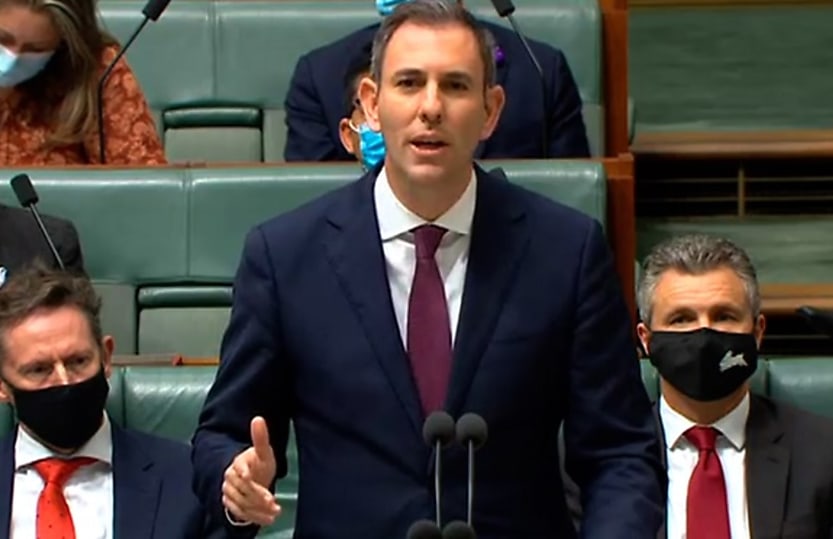Government unveils PRRT reforms ahead of tonight’s budget

Proposed reforms to the PPRT are expected to boost tax revenue and bolster the budget bottom line.
In the lead up to tonight’s budget, the government has released proposed changes to the Petroleum Resource Rent Tax (PRRT), aimed at generating higher rates of revenue from offshore LNG projects.
The government will introduce a cap on the use of deductions for offshore projects from 1 July 2023. The cap will limit the proportion of PRRT assessable income that can be offset by deductions to 90 per cent.
The reforms are expected to bring forward PRRT revenue from offshore LNG projects.
“This will ensure a greater return to taxpayers from the offshore LNG industry, while limiting impacts on investment incentives and risks to future supply,” said Treasurer Jim Chalmers.
Deductions denied under the cap would be carried forward and uplifted at the government long-term bond rate.
The announcement follows the release of the Treasury Gas Transfer Pricing (GTP) Review which found aspects of the PRRT are better suited to oil projects than LNG projects.
“The deductions cap helps address this issue and accounts for the particular circumstances and economics of LNG projects,” said Mr Chalmers.
Under the current rules, most LNG projects are not expected to pay any significant amounts of PRRT until the 2030s.
The government will proceed with eight of 11 recommendations by the GTP Review as well as eight recommendations made by the previous Callaghan Review that were accepted but not implemented by the previous government.
The Callaghan Review identified the residual pricing method (RPM) likely significantly undervalues gas prices for PRRT purposes because of the way capital is allocated, augmented and rewarded.
This reduces the assessable receipts of integrated LNG projects and the PRRT collected from them, the GTP Review stated.
The package of measures, which also includes integrity reforms, is expected to increase tax receipts by $2.4 billion over the forward estimates.
The government will consult on final design and implementation details for the deductions cap and on the draft GTP rules later this year. Consultation on other policy changes including those from the Callaghan Review will occur in early 2024.
The PRRT changes announced on the weekend are expected to support budget repair efforts.
Mr Chalmers said the measures would help “fund the delivery of vital services that Australians rely on, and help build a stronger, fairer and more resilient economy”.
Other potential measures on the table
Tonight’s budget is expected to deliver a raft of other measures aimed at funding increased structural pressures on the budget such as the NDIS, debt interest, aged care, health and defence.
Alongside the changes to the PPRT, AMP chief economist Shane Oliver said there may be cuts to tax concessions and potentially even a wind back of the stage 3 tax cuts. The budget is also expected to deliver modest cost of living relief.
“With March budget data showing a small surplus over the past 12 months it’s likely the budget balance for 2022–23 will show a small surplus possibly around $2 billion, compared to a $36.9 billion deficit projected in the October budget,” said Mr Oliver.
“Some of this improvement will carry into 2023–24 where we expect a deficit of $25 billion down from $44 billion forecast in October with a 2024–25 deficit of $40 billion.”
HLB Mann Judd tax consulting partner Jolyon Dare expects the budget will contain measure targeted at multinationals operating in Australia.
“The government will likely allocate additional resources towards the ATOs ability to investigate potential breaches around transfer pricing and thin capitalisation rules,” said Mr Dare.
“The most recent budget – held in October last year – included proposed changes to thin cap rules, restrictions on the deductibility of cross-border payments for intangibles, and increased transparency obligations for multinational groups. I would expect there to be a continued focus on this as part of Tuesday’s budget announcement, including deferrals on some of the measures previously announced as taxpayers haven’t had time to absorb the impact of the changes.”
Mr Dare said there is concern further reform in this area may impact Australia’s competitiveness with multinationals operating in Australia already subject to a higher penalty regime and scrutiny.
“The Significant Global Entity concept is out of step with other countries. The local operation could be a very small part of a big global entity but still be subjected to enormous tax risks just by being here,” he said.
“Depending on Australian revenue, the tax rate for multinationals is 25 or 30 per cent, which is high by global standards.”
Aside from international tax, Mr Dare said there could be changes in relation to the JobSeeker program and also some tinkering with the NDIS to compensate for the proposed stage three tax cuts.
“This is a year away but there’s a question mark on the sustainability of those tax cuts as originally envisaged,” he said.
“The budget could also see some tinkering in terms of the main residence exemption, which applies when you sell out of the family home. There’s an intergenerational equity issue here, and given how difficult it is for many Australians to buy a house in the current market, there could be a narrowing of the exemption.”
About the author

